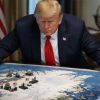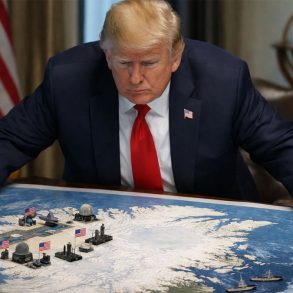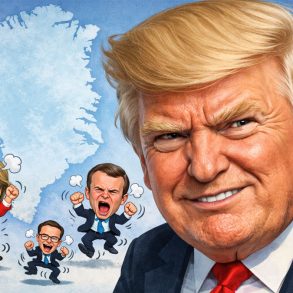A Historic First for the Catholic Church
On May 8, 2025, the Catholic Church made history when it announced the election of Cardinal Robert Francis Prevost as the 267th pope. The 69-year-old Chicago native is the first American ever to be chosen as pontiff. Stepping onto the central balcony of St. Peter’s Basilica, he greeted the faithful in Italian with the words, “Peace be with you.” Speaking also in Spanish, he emphasized the need for peace, dialogue, and bridge-building in a divided world.
“Together, we must try to find out how to be a missionary church, a church that builds bridges, dialogues, that’s always open to receive,” he said, adding that the Church must welcome “everybody that needs our charity, our presence, dialogue and love.”
Prevost chose the name Leo XIV in honor of a tradition that dates back centuries. The white smoke billowing from the Sistine Chapel, followed by the pealing of bells, marked the official end of the conclave and the beginning of his papacy.
Who Is Pope Leo XIV?
Born on September 14, 1955, in Chicago, Robert Francis Prevost was the youngest of three brothers. According to his brother John, “He knew right away” that he wanted to be a priest. “I don’t think he’s ever questioned it. I don’t think he’s ever thought of anything else.” From a young age, people in his community believed he was destined for something great. A neighbor once told him he would become the first American pope.
Prevost joined the Order of St. Augustine in 1977 and earned a degree in mathematics from Villanova University. He later completed a Master of Divinity degree at Catholic Theological Union in Chicago. In 1985, he moved to Peru, where he served as a missionary and eventually became the bishop of Chiclayo, a city of half a million people in northern Peru.
Peruvians came to know him not just as a foreign bishop but as one of their own. He was granted Peruvian citizenship in 2015. During his time there, he earned the nickname “the saint of the north” for his compassion and work during emergencies. In one instance, during the COVID-19 pandemic, he helped secure two oxygen plants to help treat patients. Janinna Sesa, who worked with the church’s Caritas nonprofit, said, “He worked so hard to find help, that there was not only enough for one plant, but for two oxygen plants.”
His fellow clergy remember his practical spirit and hands-on approach. “He has no problem fixing a broken-down truck until it runs,” Sesa added.
Why He Was Chosen
Pope Francis saw something special in Prevost early on. In 2014, he appointed him bishop of Chiclayo. Later, in 2023, he brought him to Rome to lead the Dicastery for Bishops, the Vatican office that oversees the selection of bishops worldwide. This role gave Prevost enormous influence and visibility, making him one of the top candidates going into the conclave. His reputation for humility, service, and diplomacy likely played a major role in his election.
Rev. Alexander Lam, an Augustinian friar from Peru, described him as deeply loved and respected. “Even the bishops of Peru called him the saint, the Saint of the North, and he had time for everyone,” Lam said. He recalled how Prevost camped out on the ground with ordinary people during a papal visit in 2018. “Roberto has that style, that closeness,” Lam said. “Maybe they are not great institutional gestures, but are in human gestures.”
In early 2025, Pope Francis appointed Prevost to the highest rank of cardinal, confirming his status as a trusted advisor. One of his most notable contributions was helping implement a reform that included women in the group that selects future bishops. His work behind the scenes reflected a deep commitment to fairness and inclusiveness.
Breaking the American Taboo
For generations, the idea of an American pope was considered unlikely. Church leaders feared that having a pope from the United States could make the Vatican appear too closely tied to a global superpower. The Church has long aimed to stay politically neutral, especially when it comes to countries with significant global influence.
Despite this tradition, Prevost’s background helped overcome the hesitation. He spent most of his priestly life outside the United States. His years of service in Peru and later in Rome gave him the experience and perspective of a global Church leader rather than a representative of American interests.
“He’s not just an American. He’s a missionary. He’s a citizen of Peru. He’s a servant of the Church,” said one Vatican insider. “He was chosen because of who he is, not where he was born.”
A Different Style from Pope Francis
While Pope Leo XIV shares many values with his predecessor, there are differences in style. Pope Francis often emphasized simplicity, choosing not to wear some of the traditional papal garments. Leo XIV, on the other hand, appeared in full papal regalia, including the red cape, which Francis had avoided.
Still, the new pope made it clear in his first message that he intends to carry forward Francis’ focus on inclusion and outreach. He praised Francis in his speech, calling him a leader who “shared his faith and gave so much.” In keeping with his global roots, Leo XIV did not speak in English during his first address, choosing instead to communicate in Italian and Spanish.
Natalia Imperatori-Lee, a professor of religious studies, said, “His election is a deep sign of commitment to social issues. I think it is going to be exciting to see a different kind of American Catholicism in Rome.”
Reactions Around the World
The announcement of Leo XIV’s election was met with joy and surprise. In St. Peter’s Square, Americans waved flags and embraced one another. Jessica Wood, a visitor from New York, said, “To be here for this moment is so unbelievably profound. It’s something I’m going to be talking about for the rest of my life.”
Even former presidents weighed in. President Donald Trump posted on Truth Social, “It is such an honor to realize that he is the first American Pope. What excitement, and what a Great Honor for our Country.” He added, “I look forward to meeting Pope Leo XIV. It will be a very meaningful moment!”
President Joe Biden wrote, “Habemus papam – May God bless Pope Leo XIV of Illinois. Jill and I congratulate him and wish him success.” Barack Obama called it “a historic day” and said he would pray for Leo’s leadership.
In Peru, bells rang in celebration. People gathered near cathedrals and expressed pride in the new pope’s deep connection to their country. Isabel Panez, a schoolteacher, said, “For us Peruvians, it is a source of pride that this is a pope who represents our country. We would like him to visit us here in Peru.”
Looking Ahead
As Pope Leo XIV begins his papacy, he faces a divided global Church, with tensions between conservative and progressive factions, especially in the United States. He inherits a legacy from Pope Francis that emphasized care for the poor, concern for the environment, and a more inclusive Church.
Leo XIV’s election signals a desire for continuity, but also a new chapter. His background as a missionary, his leadership in selecting bishops, and his personal reputation for kindness and humility suggest he may guide the Church with a gentle but steady hand.
His message from the balcony made it clear that he intends to focus on peace, healing, and unity. “This is the peace of the risen Christ,” he said. “May it enter your hearts, reach your families and all people, wherever they are.”








